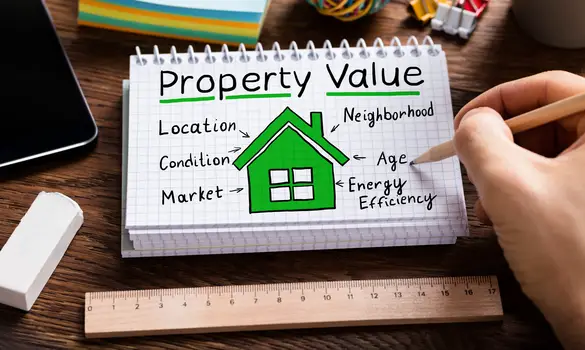
If you have a property and you sell it at a price higher than the buying price, you have realized a capital gain. The state requires property owners to pay tax on the capital gains usually calculated by valuing the property at the time you purchased it and the time you sold it.
Property valuation can be challenging for property owners who don’t have such expertise hence the need to engage a property valuer. The professional provides reliable information on the actual value of the property which is critical to calculating capital gains tax.
What Is Capital Gains Tax?
Property owners realize capital gains when an asset is exchanged or sold at a higher price. The basis for charging the tax is the purchase price, the cost of improvements, and commissions less the depreciation. For tax purposes, capital gains are classified as long-term when the property owner has held the asset for more than a year, and short-term if held for less than a year. According to US tax laws, short-term gains are taxed just as ordinary income while long-term capital gains are taxed at rates of up to 20%. With this in mind, it is crucial to review all tax laws. If you know this law, the goods and service tax law and all others, you can ensure that you abide by all laws.
Additionally, tax payers who have modified adjusted gross income above certain limits are subject to an additional 3.8% net investment income tax on both long and short-term capital gains. Special rules also apply on specific capital gains. Gains on collectibles and art are also subject to ordinary tax rates up to a maximum rate of 28%. Also, gains realized from the sale of residences of up to $250,000 are free from tax if the tax payer has lived in the house for 2-5 years. If the property owner received the property as a gift, the tax basis for such as asset is stepped up to the existing value on the date of the donor’s death. This step-up provision does not apply to gains on assets held until the death of the donor.
When To Engage A Property Valuer
Generally, the selling price of the property is used to calculate the capital gains tax. However in some situations, the market value of the property applies. Such scenarios include:
- When donating your property
- When planning to sell the property at a reduced price
- A time when you want to deduct the cost of improvements performed on the property
- If planning to pass on the property to a family member
- When you want to calculate the original price of the property if it was owned or inherited before capital gains tax was enforced
Role of A Property Valuer
Calculating the amount of capital gains tax involves complex procedures especially if you have owned the property for a long time. The state requires partnerships, individual taxpayers and trusts to calculate the tax liability based on valuations made under self-assessment procedures. Property valuers are well-versed in this field and help perform such valuations. They know how to determine the value of my property and can also calculate the amount of capital gains tax you need to pay to the state. Here’s a brief on their roles:
Accurate Capital Gains Tax Valuations
An accurate valuation is essential for any form of property sale as it affects investment returns. A property valuer ensures you don’t pay more tax by calculating the valuations on a statutory basis.
Identify Value And Price Difference
A valuer will also help you understand the actual value of your property for reasons such as property tax, mortgage, insurance, a sale, owner-occupier allowance, rental negotiations to mention a few. Most properties have the sum insured based on the purchase price or the perceived market value. Property valuers perform a revaluation. An open market value does not reflect the cost of rebuilding. Hence, it is not adequate to calculate a house valuation.
Take Advantage Of The Tax Deduction
If you are holding the property for investment purposes, valuation expenses are treated as tax deductibles. Keep in mind undervaluing the property makes you liable to a fine on future and overvaluing leads to additional taxes every year. A property valuer will prevent this from happening by calculating the correct figures. You can also use a depreciation formula to maximize any business tax deductions.
Issue A Valuation Form
Upon completion of the exercise, the professional issues a valuation form which is an essential part of tax liability. The document provides the following information:
- A visit to the site
- Measurements of the property and photographs
- A detailed research on the property
- A post-valuation report provided via email or phone
- Proof of communication with solicitors or accountants to ensure the valuation meets your circumstances
Clearly, professional capital tax valuation is an essential aspect of any property owner planning to sell a property. The valuers not only provide the actual amount of tax you need to pay but also create a report to help authorities understand the rationale for the figures provided and the valuation. Also, if the tax officers disagree, the professional can negotiate on behalf of the property owner to achieve the best outcome.
 Business First Family Business, Accounting, Finance, Investing, Marketing And Management
Business First Family Business, Accounting, Finance, Investing, Marketing And Management